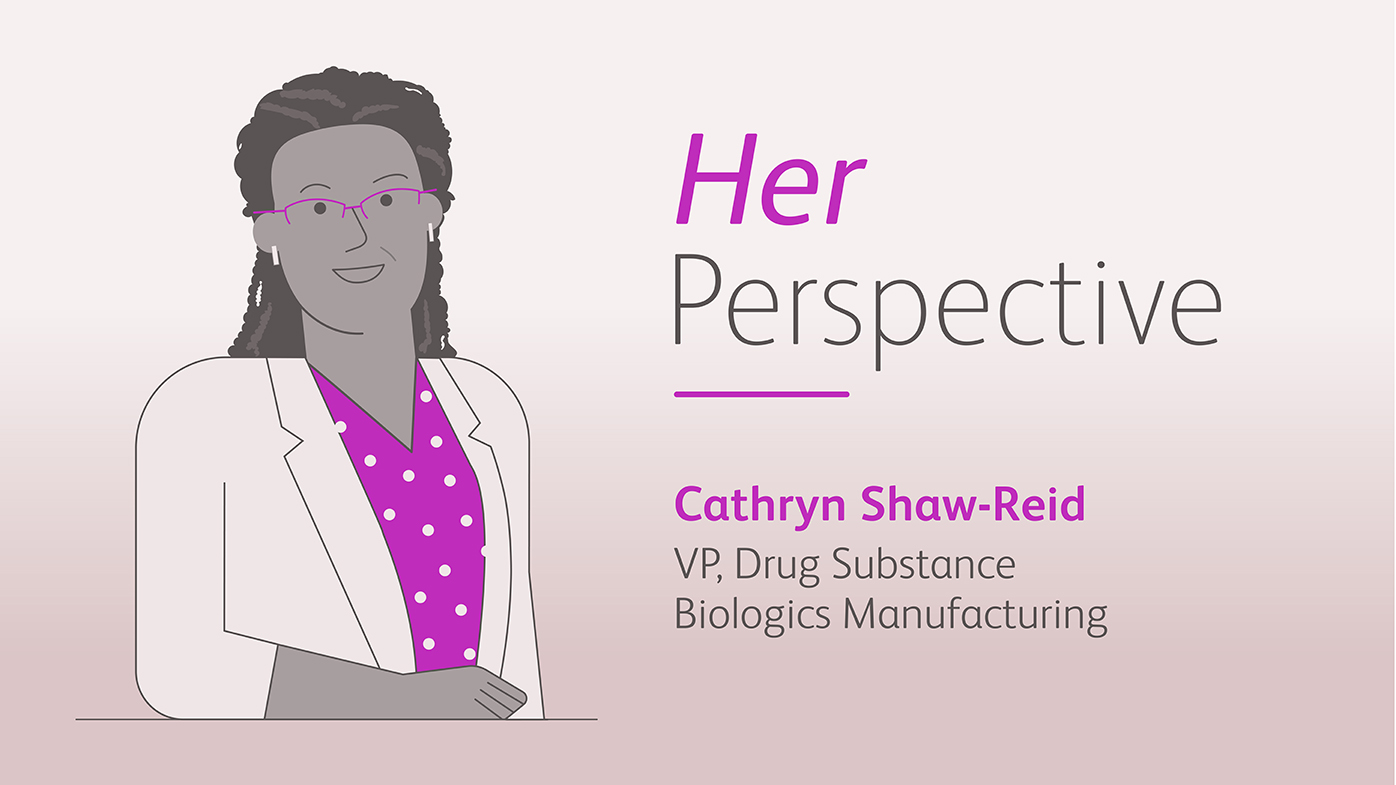Leading with Flexibility and Authenticity: Advice from Cathryn Shaw-Reid
Cathryn Shaw-Reid, vice president, Drug Substance Biologics Manufacturing, has spent all of her 20-year career in health industry leadership roles, but her leadership qualities first began to emerge during her high school days on the basketball team and as head of the School’s Leadership Development Steering Committee.
Her leadership skills and leadership traits have evolved since then, as new life, educational and work experiences introduced new lessons. But it was stepping into her current role in January 2020 that helped crystallize three pieces of advice she has for thriving at work and connecting with colleagues to produce the best outcomes: be flexible, be authentic and listen to seek to understand others’ perspectives.
By putting her own advice into action, Shaw-Reid has strengthened not only her teams’ ability to collaborate but increased their productivity as well.
Below, Shaw-Reid, who earned her Ph.D. in Biochemical Engineering from the Massachusetts Institute of Technology, shares her leadership insights and advice, as well as a book that helped her grow.
Q: At Bristol Myers Squibb, you have been vocal about the importance of being yourself. Have you always thought authenticity is an important leadership quality?
CSR: Authenticity is a quality I’ve brought to the table later in my career because it requires a comfort level I didn’t have when I was younger. I spent the early part of my career focused on my technical expertise. I wanted to be renowned for what I thought everyone else was being recognized for, not as an outlier because I’m an African-American woman.
When I joined Bristol Myers Squibb, I knew I wanted to bring my authentic self as an African-American to work in a way I had never quite done before. This has meant talking about issues or myself, my family or my history in a way I had previously hesitated to do. I gathered my courage and decided to show up just as I am, and if I feel like it’s important to talk more about race or gender, then I do so. My story has value, whether related to race and gender or not, for all men and women, and particularly for the people of color in this organization.
Q: What is the best piece of advice you have received in your career and how did it change how you work?
CSR: Be flexible. Leadership isn’t one-size-fits-all. Bringing a willingness to change the way I behave and react to situations enriches my experience and that of my team. In the Global Product Development and Supply organization, we emphasize the values of agility and urgency for the business, and being flexible is an essential part of being agile.
When I joined BMS, I was quite purposeful in how I started my tenure. I wanted to be ready to adapt to situations and to do so in a way that was different compared to how I approached previous roles. I didn’t want my team to think everything had to be done my way. I wanted them to know I’m receptive to learning and adopting their ideas, too.
A flexible mindset has been especially important during the COVID-19 pandemic. Managing COVID in parallel with our manufacturing objectives has required discipline and staying calm amid uncertainty. But leading during a crisis is different from how I lead during our strategy meetings, for example. In those, I need to create a space for everyone to feel comfortable sharing ideas and thinking of innovative, new ways of working, so that we can continue to produce the medicines that meet the needs of our patients.
Q: What piece of advice do you find yourself most often giving?
CSR: Listen and seek to understand by placing yourself in the other person’s shoes. This is about being humble, and I find it to be good advice for any department, situation or type of leader. For early-career professionals, humility allows you to approach learning with enthusiasm and joy. For more seasoned professionals, showing up in complex, cross-functional environments with the mindset of seeking to understand—for yourself and colleagues—facilitates problem solving.
About five years ago I read the behavioral economics book “Thinking, Fast and Slow” by Daniel Kahneman. It really grounded me in this philosophy and taught me how people show up and use different parts of their brain to make decisions inside and outside the work environment.
At Bristol Myers Squibb, one of our values is urgency: we move together with speed and quality because patients are waiting. When we listen to each other and accept each others’ differences, we can move faster in a positive direction. This is, of course, essential in diversity and inclusion as well, which has really come to the forefront this past year. Listen, and seek to understand.



